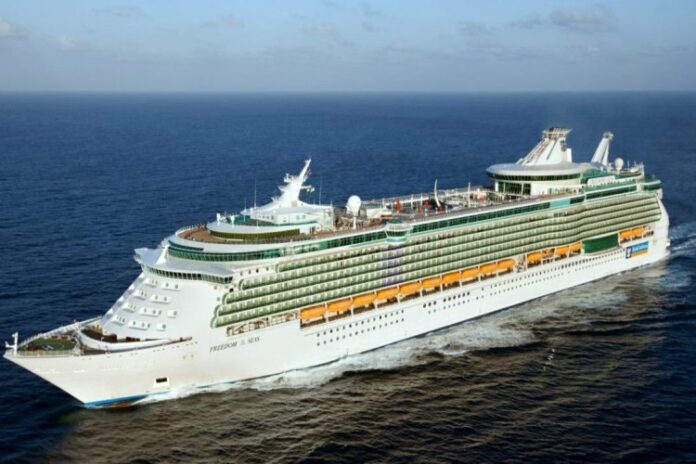This study is part of broader recommendations put forth by the Healthy Sail Panel, a group of industry-leading public health experts, to ensure a healthy and safe global return to sailing
Royal Caribbean Group engaged UNMC and the National Strategic Research Institute (NSRI) at the University of Nebraska with the support of the Healthy Sail Panel, a group of globally recognized experts assembled by Royal Caribbean Group and Norwegian Cruise Line Holdings Ltd., to guide the cruise industry’s way forward in response to COVID-19.
The study by UNMC and NSRI scientists, conducted in July 2020 on Oasis of the Seas, helped inform the Healthy Sail Panel’s 74 detailed best practices to safeguard the health of guests, crew and communities cruise ships visit. The Healthy Sail Panel’s science-based recommendations were outlined in a 65-plus-page report submitted in September and is open sourced for others to incorporate in their protocols as well.
A team of five medical scientists specializing in bioaerosols, led by Josh Santarpia, PhD. – associate professor, pathology and microbiology, UNMC; and research director, chemical and biological programs, NSRI – were called on to understand in detail the role of HVAC systems in spreading airborne particles on cruise ships. The study specifically explored the effectiveness and efficiency of ship air management strategies – ventilation, filtration and supply – and examined air flow across different areas of the ship, including guest staterooms, crew staterooms, lounges and other public spaces.
Researchers found the transmission of aerosol particles between spaces, through the ventilation system, to be undetectable on surfaces and in the air. A leader in modern cruise ship design, Royal Caribbean Group has long been at the forefront of the industry’s latest innovations and advancements; and so, the existing HVAC systems were created to be robust and efficient in providing maximum ventilation, continual fresh air intake and layers of filtration for both incoming and outgoing air.
Based on the findings of the UNMC study and at the recommendation of the Health Sail Panel, Royal Caribbean Group is adopting new practices, incorporating additional layers of protection that further minimize the possibility of spread by adjusting shipboard settings to allow for the maximum air changes per hour and upgrading to MERV (Minimum Efficiency Reporting Value) 13 filters throughout the system. In addition, Royal Caribbean Group already equipped its medical facilities with an independent ventilation system and has added HEPA filters for additional precaution.



